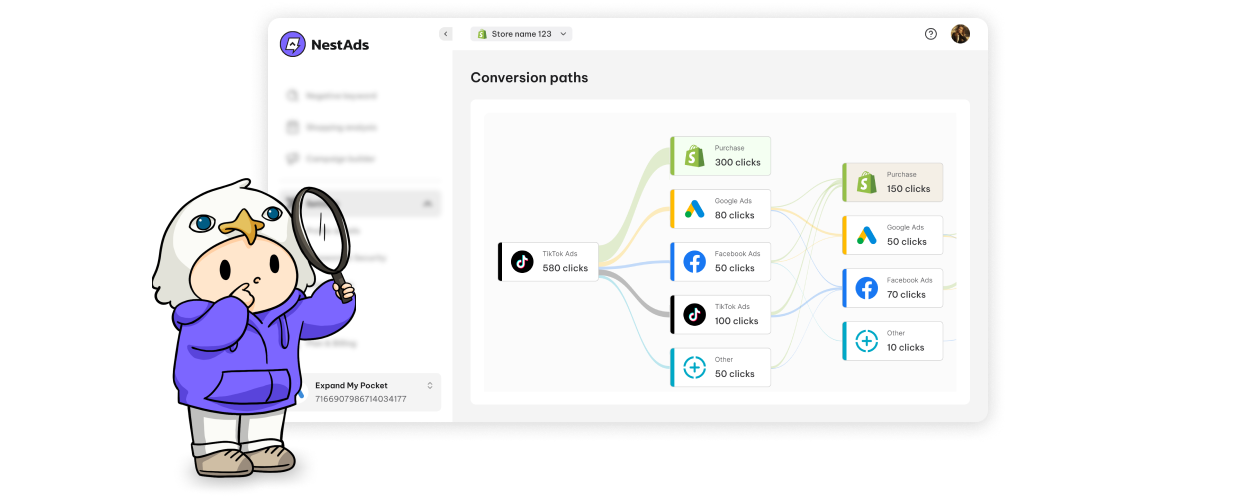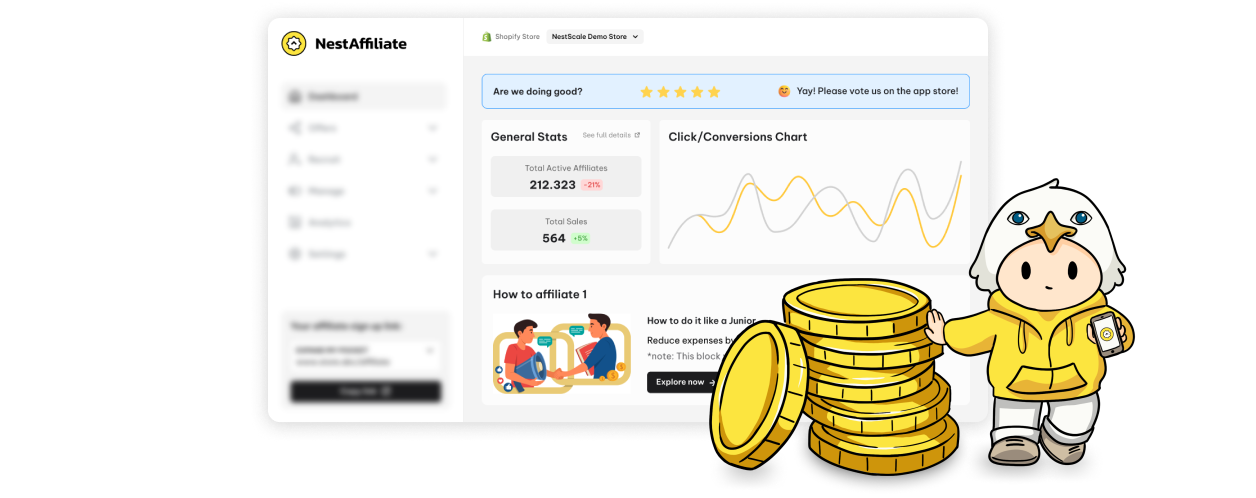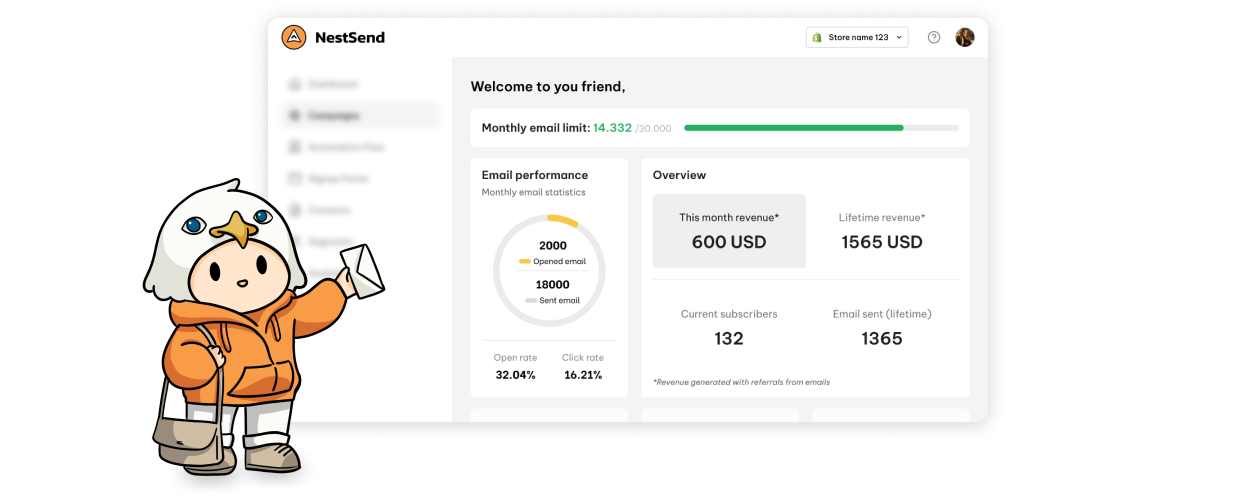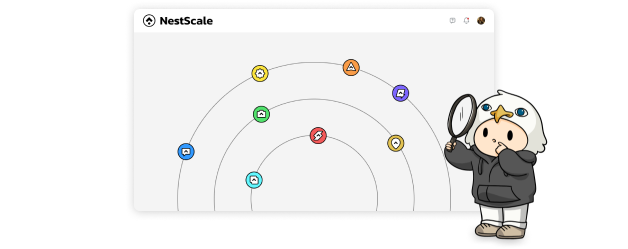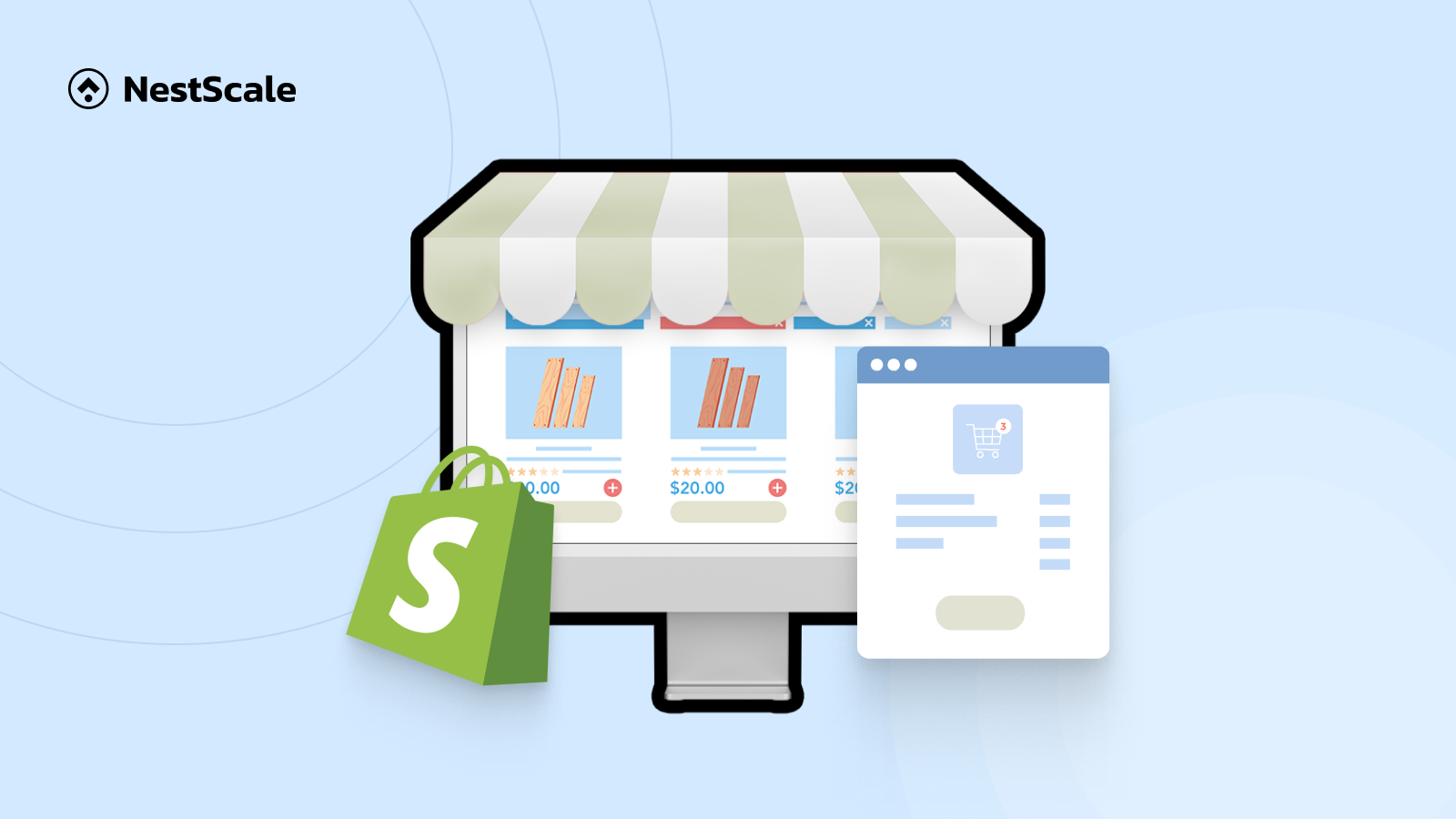Shopify combined listings aren’t just useful for organizing color or size variants, they’re also a powerful way to enhance your Shopify SEO when implemented correctly.
By grouping similar product variants under a single product page, you reduce clutter, improve user experience, and increase your chances of ranking for long-tail keywords.
In this article, you’ll discover practical SEO tips for working with combined listings and learn how to apply them using the NS Color Swatch Variant Images app, a no-code tool that helps Shopify merchants stand out and convert better.
5 Proven Ways to Boost SEO with Combined Listings in Shopify
1. Use Unique URLs for Each Variant
In Shopify combined listings, assigning a unique URL for each variant (like color or size) helps improve your visibility in long-tail search queries.
When each variant has its own SEO-friendly link, search engines can index them individually. This increases your chances of ranking for specific keywords, rather than relying on one generic product page.
2. Add Rich Snippets and Structured Data
Rich snippets help your product listings stand out in Google search results by displaying extra details like ratings, prices, and stock status. To take advantage of this, use a Shopify theme or app that supports structured data.
Make sure your combined listings include accurate product information, such as variant names, availability, reviews, and pricing, so Google can read and display it properly in search results.
3. Optimize Variant Images and ALT Texts
Each product variant should have its own high-quality image and descriptive ALT text to improve both accessibility and image search rankings.
For example, instead of uploading one image for all colors, use specific photos and tag them with keywords like “red silk evening dress”. This allows Google Images to recognize and index each variant more effectively, bringing in additional organic traffic.
4. Reduce Duplicate Content
When every variant has its own product page, you risk creating duplicate content that confuses search engines and weakens your SEO authority.
The better approach is to combine all related variants under one master product listing. Then, hide the original pages from your storefront and search engines to prevent index bloat. This keeps your site clean and helps Google focus on one authoritative page per product group.
5. Improve Internal Linking with Variant Anchors
Internal linking improves site structure and SEO by helping both users and search engines navigate your content more easily.
Instead of using generic links like “Shop now,” point directly to variant-specific URLs using meaningful anchor text, for example, “Explore our Black Leather Backpack.” This makes your links more relevant, helps Google associate keywords with the right product, and creates a better shopping experience.
To put these methods into action, you’ll need a reliable tool, and NS Color Swatch Variant Images is a suitable app to get the job done.
How to optimize Shopify combined listings with NS Color Swatch Variant Images
Step 1: Install & Embed the App in Your Shopify Theme
- Search for NS Color Swatch Variant Images on the Shopify App Store and click Add app.
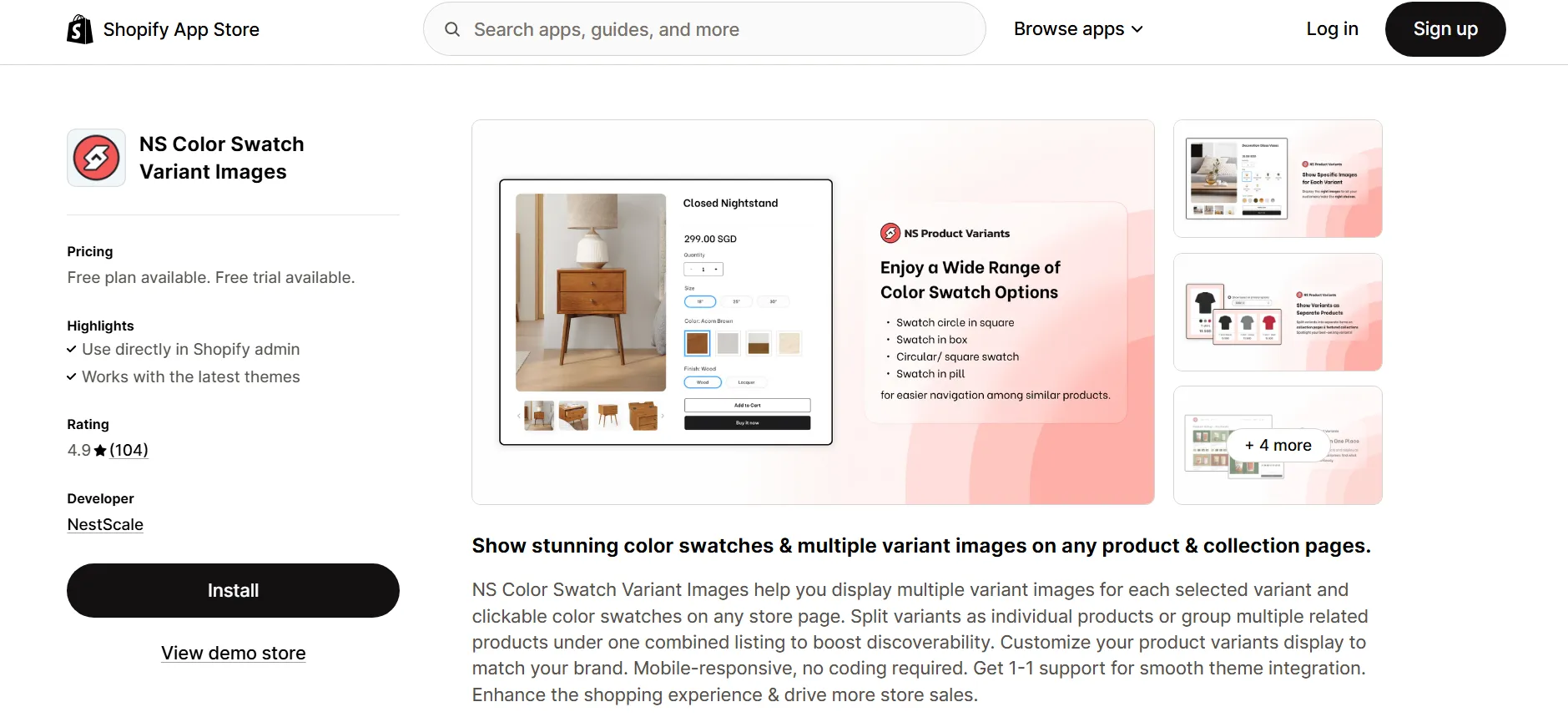
- Open the app from your admin and follow the Get Started guide.
- Click Embed App, toggle it ON in your theme editor, and save.
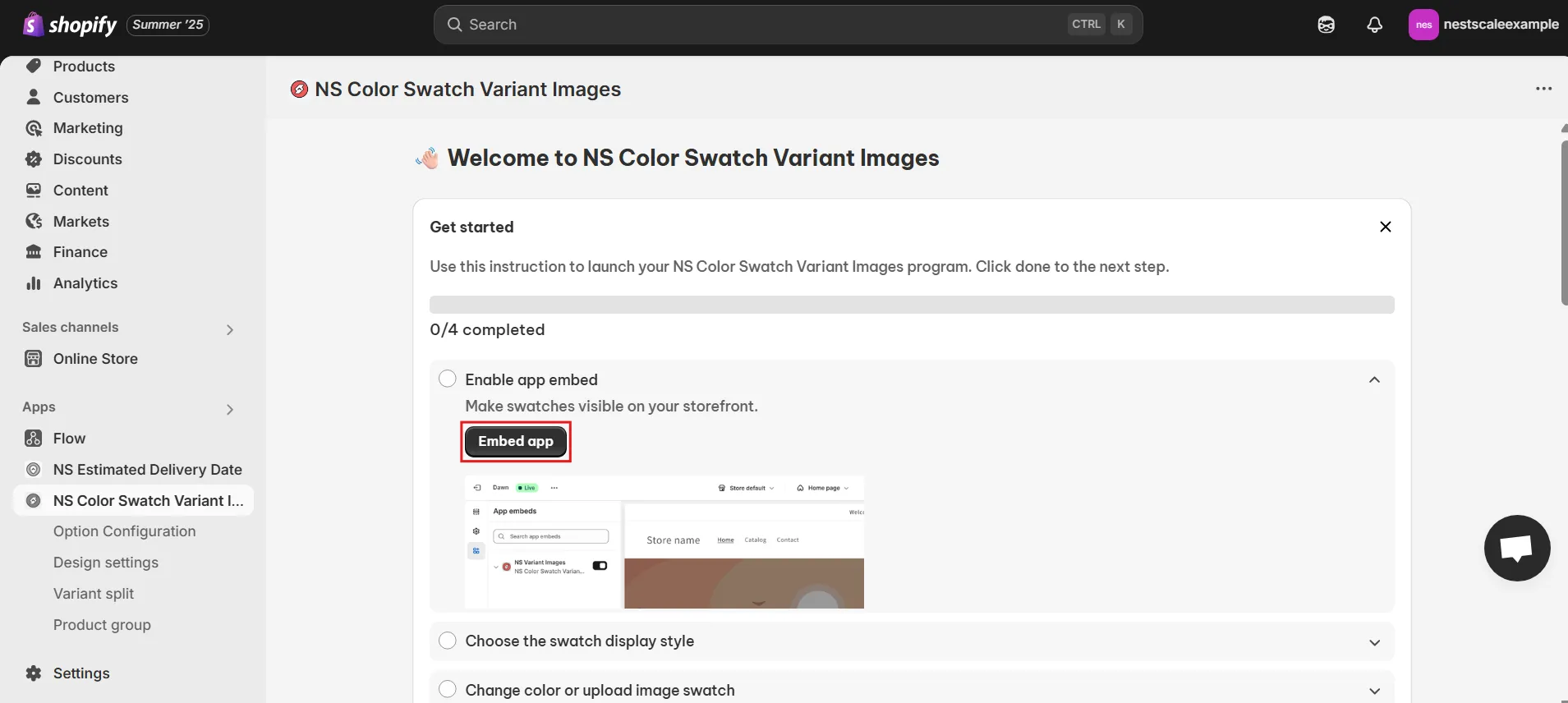
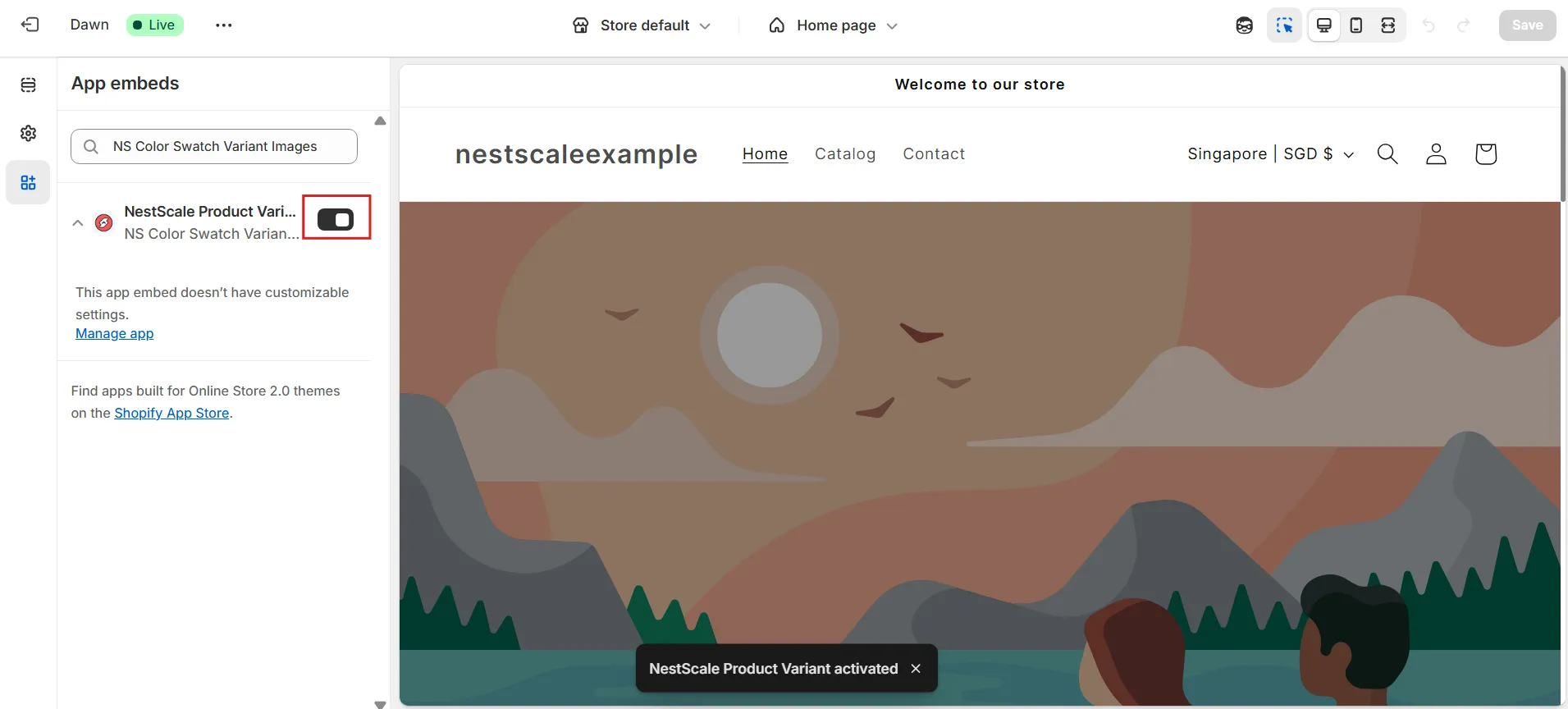
Step 2: Configure Swatches and Display Settings
- In the app, go to Option Configuration and select the products/variants you want to display as swatches.
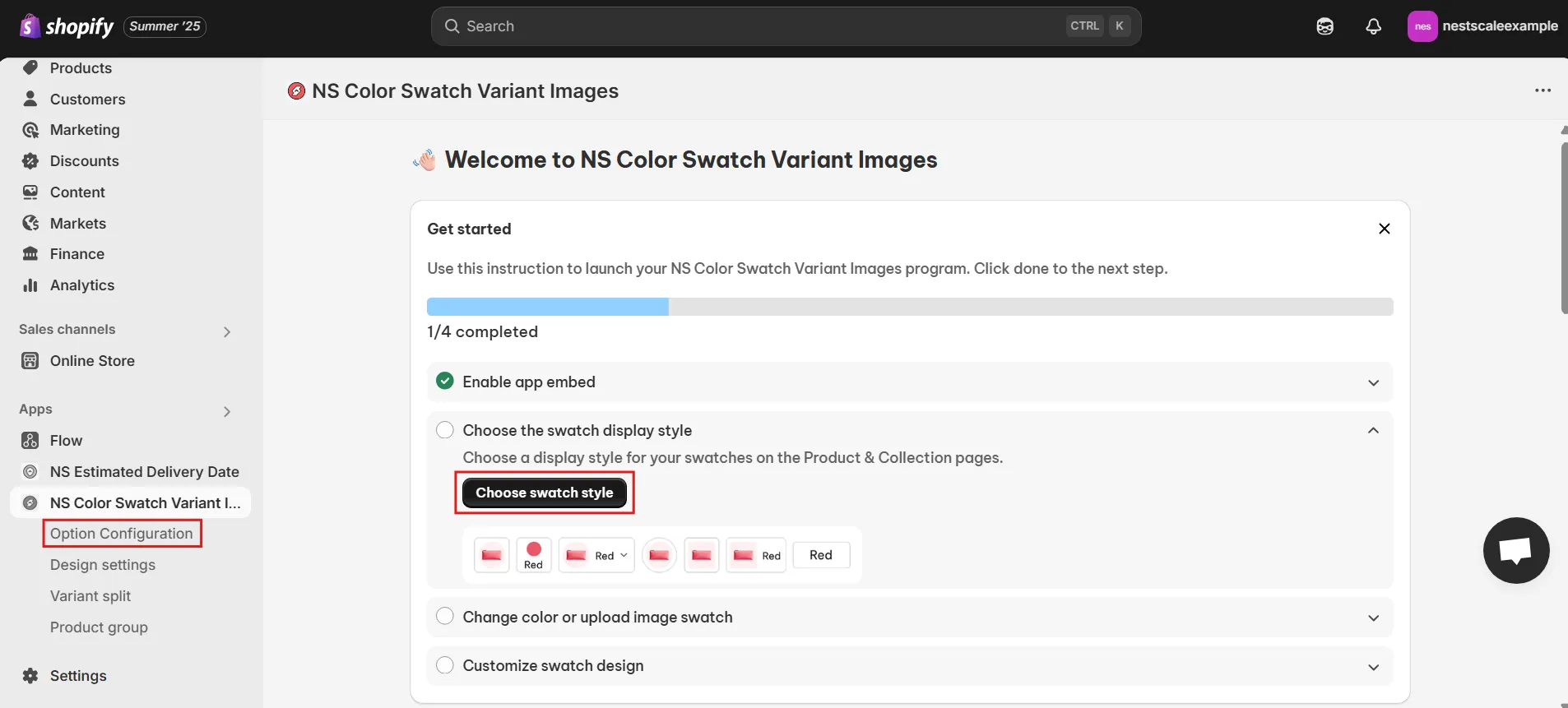
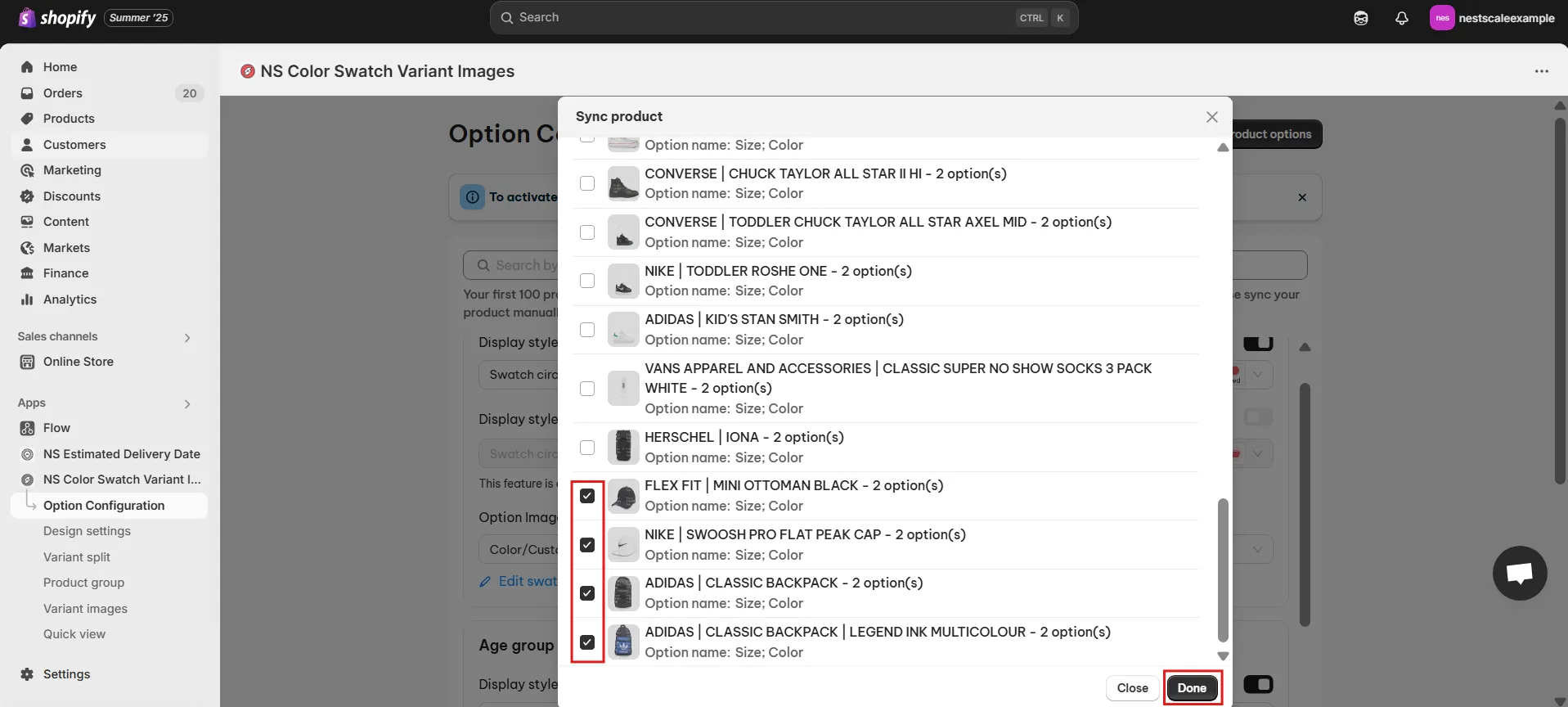
- Toggle ON Display Style on Product Page and Collection Page if needed.
- Choose your swatch type (circle, square, pill) and assign images, custom colors, or HEX codes.
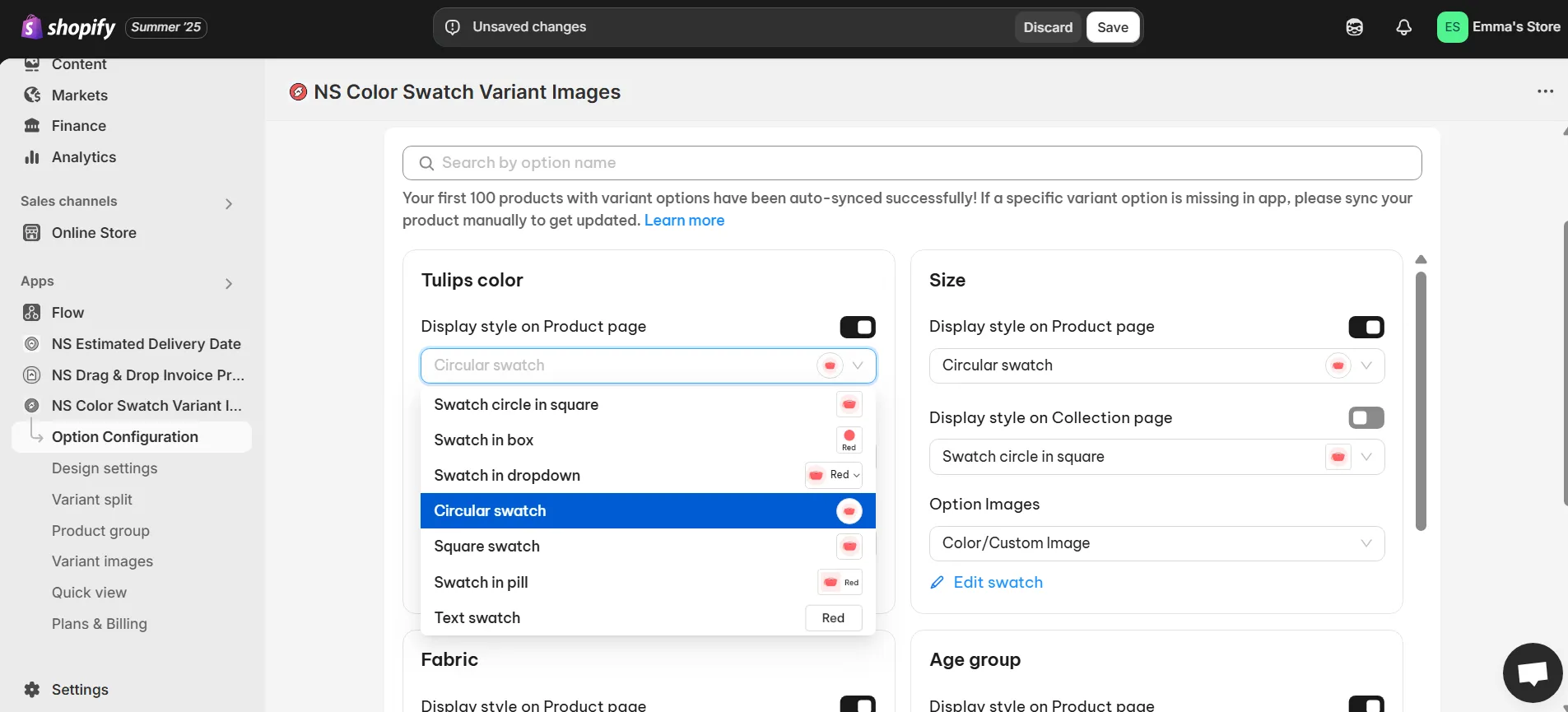
- Customize swatch design under Design Settings and use the live preview to fine-tune styles.
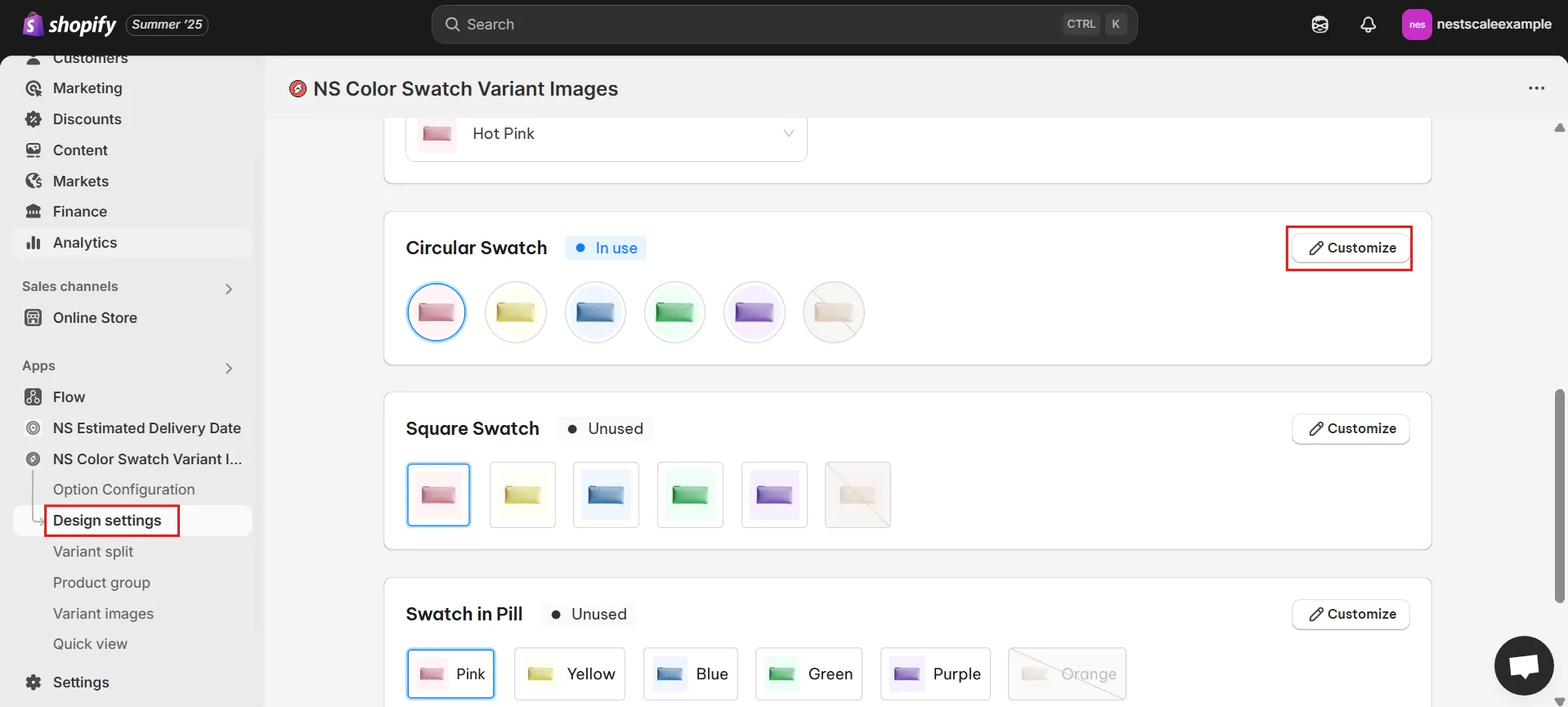
Step 3: Create Combined Listings
- Navigate to Combined Listing → click Create Product Group.
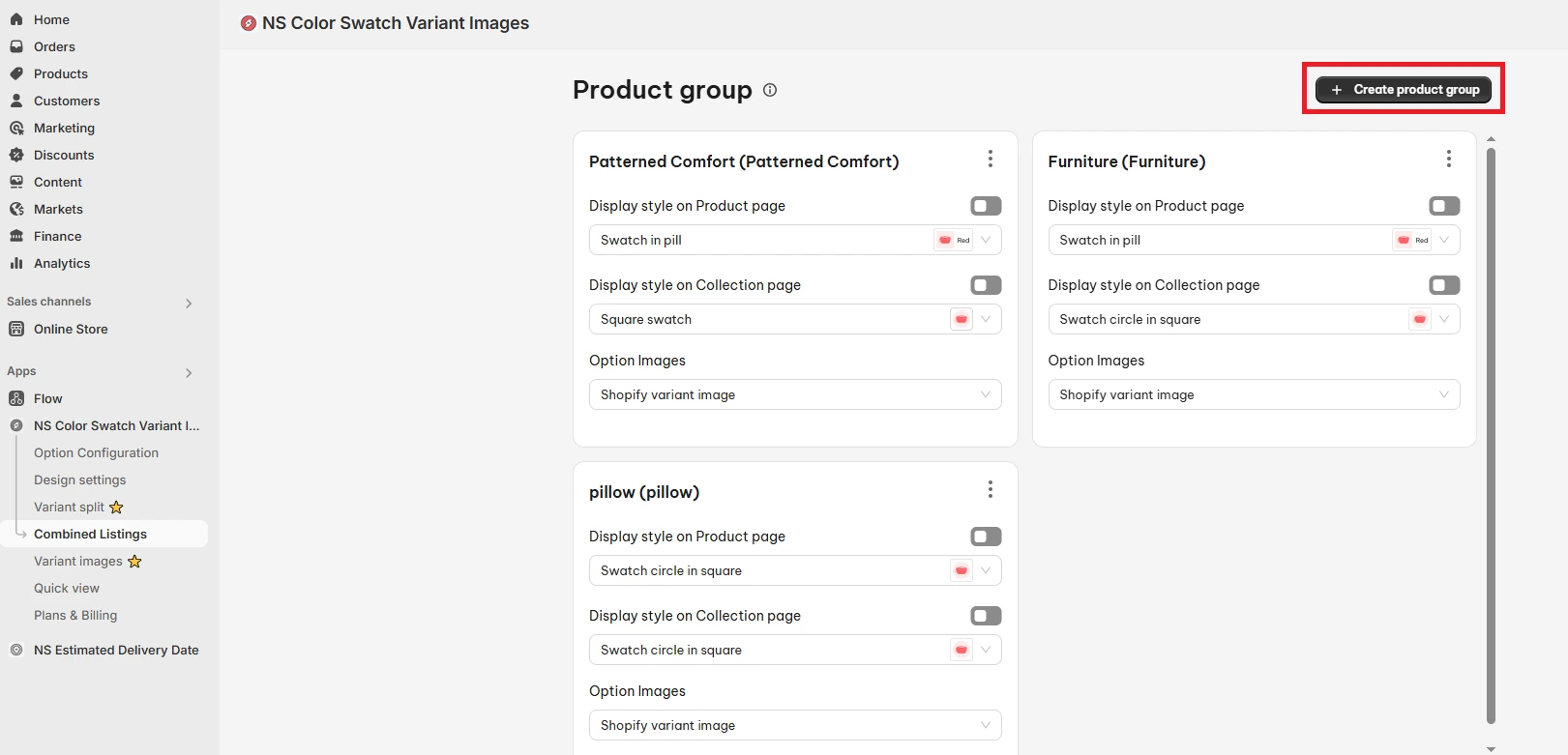
- Select the individual products you want to merge into one combined listing.
- Save changes and enable display settings.
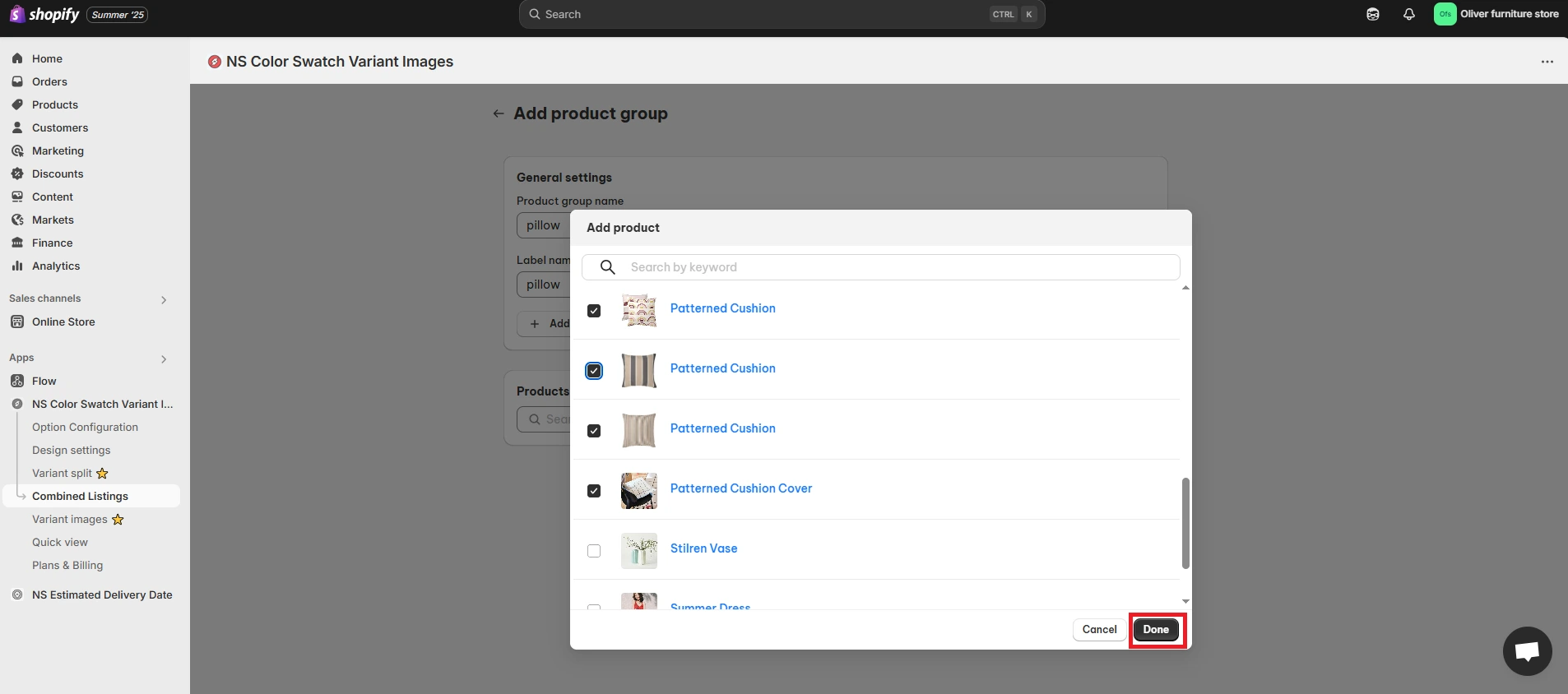
- Your storefront will now show variants grouped under a single product with clickable swatches.
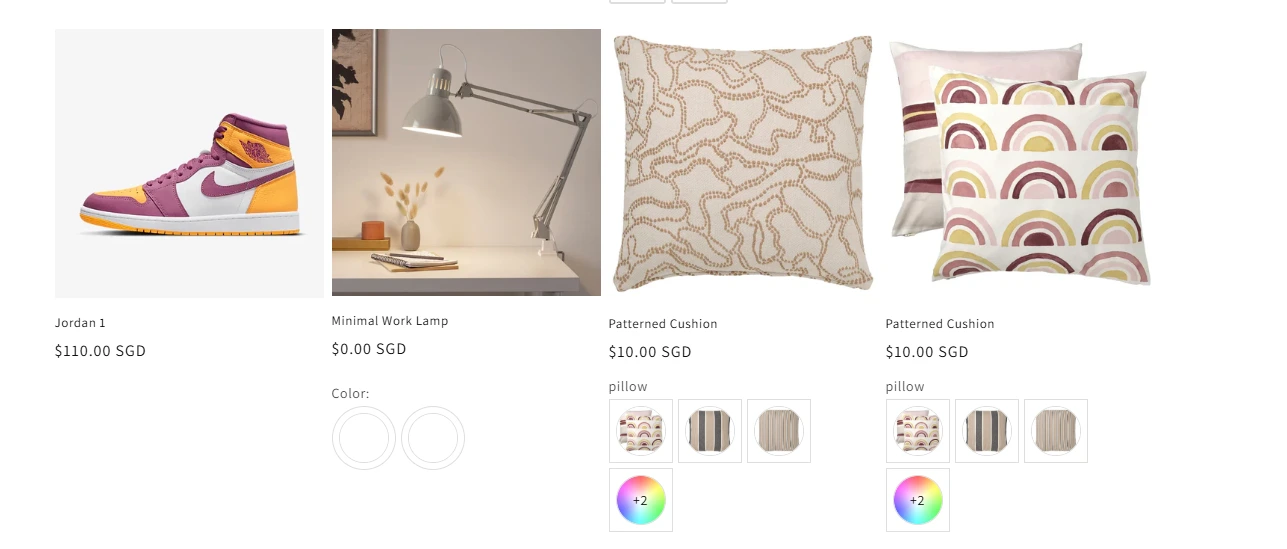
Video Tutorial: How to Create Shopify Combined Listings (Step-by-Step Tutorial 2025)
💡 Let’s check out our recent YouTube tutorial from Sarah. She’s going to show you step-by-step how to create clean, unified listings with clickable swatches or images. So, instead of showing multiple similar products, you can group them into a single product page with color or pattern options.
FAQs
1. Is it better to list product variants (e.g., colors) as one product with multiple variants or separate listings per variant?
It depends on your store’s goals and how you want customers to browse.
- One product with multiple variants keeps your store organized, reduces duplicate content, and makes it easier for shoppers to compare options in one place. It’s often better for SEO if each variant still has a unique, crawlable URL.
- Separate listings per variant can give each option more visibility in search and collections, which may help if customers are likely to search for a specific color or style. However, it can also create clutter and duplicate content if not managed with proper SEO practices like canonical tags.
The best approach is to choose the structure that aligns with your catalog size, SEO strategy, and customer shopping behavior.
For a deeper comparison of these two approaches, check out our guide: Show Variants As Separate Products or Combine Listings in Shopify?. It explains two concepts: Variant Split vs. Combined Listings, helps you decide what works for your Shopify store, and shows how to implement them effectively.
2. Does listing the same product multiple times under different categories hurt SEO?
Yes, if not managed correctly. Shopify may generate different URLs for the same product when it appears in multiple collections, which can lead to duplicate content. This confuses search engines and may split your ranking potential.
To avoid this, use canonical tags to point to the main version of the product page and avoid copying identical content across categories. Displaying a product in multiple collections is fine as long as your URL structure is consistent and clean.
3. How to optimize a large number of listings for SEO efficiently?
Start by grouping similar products using Shopify combined listings to avoid repetition and improve structure. Then use bulk editing tools or SEO-focused apps to update meta titles, meta descriptions, and ALT texts across your catalog. Make sure to use long-tail keywords in product titles and optimize image names and ALT tags for each variant. Implement structured data for rich results, and use internal links from blogs or collections to important products to boost discoverability.





